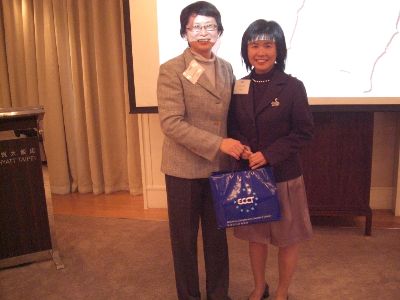Introduction to the International Fiscal Affairs Department

According to Su, the main rationale for the restructuring is to make Taiwan more international. The aim is to synchronise and streamline current functions.
The new department's main duties are related to tax treaties, Customs Mutual Assistance Agreements, customs cooperation, financial cooperation and exchanges, Asia-Pacific Economic Cooperation (APEC) and the World Customs Organization (WCO).
Currently Taiwan has tax treaties with only 25 countries, 11 of which are in Europe and seven in Asia. It is one of the department's main objectives to promote tax treaties with more countries.
Sung said that it is not just the number of treaties that matters, but how the treaties help to create benefits for signatories and a favourable environment that attracts investment.
Countries without tax treaties are at a disadvantage to those that do.
Tax treaties are designed to eliminate double taxation and evasion while ensuring fairness (reciprocal and balanced sharing of tax revenue between signatories).
Tax treaties provide permanent incentives to signatories as opposed to national tax legislation, which is subject to periodical change. This gives investors a degree of certainty that is essential for medium and long-term business planning.
Sung cited the example of Taiwan's tax treaty with Singapore which has been in effect for 30 years.
Companies benefit from tax treaties through lower taxes (eg withholding tax can be reduced from 20% to as little as 5%) and exemptions but another important benefit is the built-in Mutual Agreement Procedure (MAP), which can be utilized to resolve any tax disputes that may arise.
In order to improve of the efficiency of the application process for benefits under tax treaties, the MoF has drawn up a list of assessment rules and simplified procedures. It has also drafted forms to simplify the application process.
Besides tax treaties, the new department will also promote customs agreements with other countries. Having such agreements in place helps to speed up customs clearance, an important issue for logistics companies, exporters and importers.
Currently Taiwan has seven agreements in place, including an agreement with China but none so far with European countries. The new department will seek more customs agreements.
